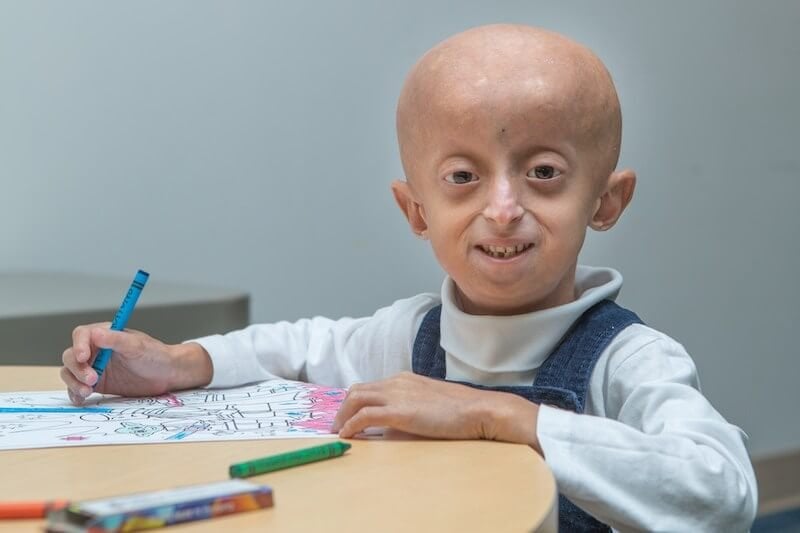“The outcome is incredible,” says gene-therapy researcher Guangping Gao of the University of Massachusetts, who was not involved with the study.
Although the developers of the progeria therapy aim to improve it, they are also taking steps toward testing the current version in affected children, and some other scientists endorse a rush. The mouse results are “beyond anyone’s wildest expectations,” says Fyodor Urnov, a gene-editing researcher at the University of California, Berkeley. “The new data are an imperative to treat a child with progeria … and do so in the next 3 years.”
About 400 people in the world are estimated to have Hutchinson-Gilford progeria syndrome… Toddlers soon become bald and have stunted growth, body fat loss, stiff joints, wrinkled skin, osteoporosis, and atherosclerosis. People with progeria die on average around age 14 from a heart attack or stroke.































